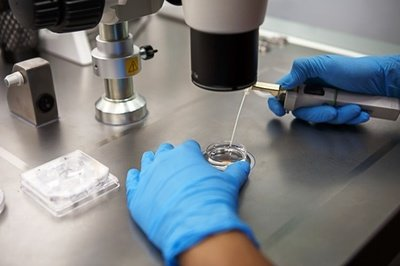Can Seminal Vesiculitis Cause Excessive Semen Volume?
Date:2022-11-24 click:0
Seminal vesiculitis, as the name implies, is an inflammation of the seminal vesicle. A non-specific infection usually causes it; the pathogens are Escherichia coli, Proteus, and Staphylococcus. Seminal vesiculitis and prostatitis are closely related and often occur successively or simultaneously.

The main route of infection is a retrograde transurethral infection, which may also cause chronic congestion and edema of the prostate and seminal vesicle secondary infection due to frequent sexual excitement or excessive masturbation. So seminal vesiculitis is more common in sexually active young men.
Seminal vesiculitis can be divided into acute and chronic. People with acute seminal vesiculitis have frequent urination, urgent urination, pain in urine, abdominal or perineal distension discomfort due to semen retention, accompanied by systemic symptoms, such as fever, chills, and so on. The most common form of chronic seminal vesiculitis is hematospermia, which is often repeated and lasts for several years.
Most patients have perineal and lower abdominal discomfort, no apparent urinary tract irritation symptoms, and no ejaculatory pain. Patients with a long period of the disease have decreased sexual desire, frequent spermatorrhea, and premature ejaculation. Some even appear to have nervous system symptoms, such as dizziness, limb weakness, etc.
Excessive semen caused by seminal vesiculitis is excessive sperm secretion or exudation, and the total sperm count does not change. This will cause the sperm density in the semen to decrease, interfere with sperm movement and function and affect the chance of conception. In a healthy mature man, about 3-5 ML of semen is expelled at a time, but more than 8 ml is considered too much semen.
A sperm count exceeding the maximum normal value will also cause male infertility, caused by seminal vesicle inflammation or pituitary gonadotropin secretion too high. Too much semen can cause many sperm to be lost from the vagina after sex, thus reducing the chances of conception.
In addition to causing excessive semen, seminal vesiculitis can change the composition of the semen, such as seminal vesiculitis caused by pathogenic microbial infection, which can lead to the inclusion of bacteria in the seminal plasma. Bacteria consume the nutrients in the sperm plasma and produce some metabolic wastes, which will cause sperm motility to decline.
Seminal vesiculitis reduces the pH of the seminal plasma, which increases the amount of acid that causes sperm motility to decrease. Seminal vesiculitis can also increase the viscosity of semen, resulting in semen not being easy to liquefy. Hence, the sperm and egg combination is complex, which can also lead to male infertility. So if you have seminal vesiculitis, be sure to treat it promptly.
The more common symptom of seminal vesiculitis is blood sperm when ejaculating. The semen is pink, and there may be blood clots, loss of sexual desire, impotence, premature ejaculation, and other symptoms. There may also be ejaculatory pain, which is more evident at the moment of ejaculation. After the discovery of seminal vesiculitis, do not panic. The treatment needs to take different ways according to the infection factors:
1. 30% of seminal vesiculitis is a bacterial infection requiring antibiotics.
2. Caused by mycobacterium tuberculosis: anti-tuberculosis treatment is required;
3. Unclear infection bacteria: antibiotics can be selected according to experience;
4. 70% non-bacterial infection seminal vesiculitis: Traditional Chinese medicine is recommended for treatment, like Diuretic and Anti-inflammatory Pill from Wuhan Dr.Lee’s TCM Clinic and bad living habits should be corrected.
Recommended Readings:



